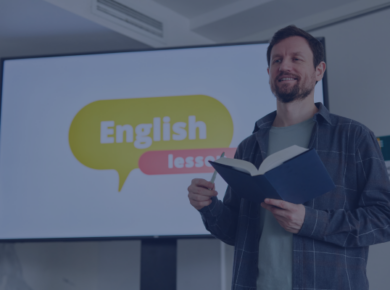Table of Contents
- Defining Lifelong Learning in the Modern Context
- Why Lifelong Learning Matters More Than Ever
- Closing the Skills Gap
- Building Adaptability in a World of Change
- Driving Career Growth and Employability
- Strengthening Organizations Through Learning Cultures
- The Expanding Role of Technology and Institutions
- Challenges and Barriers to Lifelong Learning
- A Workforce Transformed by Lifelong Learning
- Conclusion: Learning as a Lifelong Practice
For most of the last century, education was treated as a one-time milestone. People earned a degree, entered the workforce, and relied on that initial training to sustain their careers for decades. That model no longer holds. In today’s fast-paced and unpredictable economy, skills can become outdated in just a few years. New technologies, global competition, and shifting industries have accelerated the demand for workers who can adapt, reskill, and evolve. This is where lifelong learning moves from a personal virtue to an economic necessity.
Lifelong learning is not only about taking extra courses or collecting certificates. At its core, it is about adopting a mindset of curiosity and adaptability which translates to an openness to new ideas and experiences that stretches across one’s career and life. This mindset has become the defining quality of successful professionals and resilient organizations.
Defining Lifelong Learning in the Modern Context
The phrase “lifelong learning” often evokes images of classrooms and formal degrees, but the modern definition is much broader. It includes digital micro-credentials, professional workshops, mentorship, on-the-job projects, self-directed study, and even informal learning experiences.
For professionals, lifelong learning means more than staying employable, it means staying relevant. It helps individuals pivot when industries transform, transition into new roles, and unlock opportunities that would otherwise remain closed. For businesses, it ensures that teams remain innovative and competitive, capable of responding to change rather than being disrupted by it.
Why Lifelong Learning Matters More Than Ever
The speed of change in the labor market is staggering. According to the World Economic Forum, over one billion jobs will be transformed by technology by 2030. Artificial intelligence, automation, and green technologies are reshaping what skills are in demand.
In such a context, learning cannot be treated as a phase that ends at graduation; it must be an ongoing process. The reasons are clear:
-
Closing skills gaps between education and industry.
-
Strengthening adaptability in the face of disruption.
-
Fueling career growth by demonstrating initiative and readiness.
-
Building stronger organizations that thrive on innovation.
Each of these dimensions reinforces the others, creating a cycle of progress for both individuals and employers.
Closing the Skills Gap
Traditional education systems often struggle to keep pace with the rapid evolution of industries. Entirely new professions have emerged in fields like cloud computing, data science, and renewable energy, areas barely covered in university curricula a decade ago. This mismatch creates a gap between what workers know and what employers need.
Lifelong learning bridges this gap. Upskilling aligns existing talent with emerging technologies, while reskilling enables career pivots into entirely new roles. For example:
-
A marketing professional may upskill in data analytics to meet rising demand for evidence-based campaigns.
-
A manufacturing worker may reskill into green energy systems as industries adopt sustainability practices.
For organizations, investing in the continuous development of employees reduces reliance on external hiring and ensures teams remain equipped to meet new challenges.
Building Adaptability in a World of Change
If there is one quality that defines successful workers today, it is adaptability. Lifelong learning nurtures this adaptability by fostering a mindset that views change not as a threat but as an opportunity.
Adaptability extends beyond technical abilities. Human skills such as problem-solving, creativity, and communication become even more critical when paired with evolving technology. The combination of digital fluency and human strengths equips professionals to navigate uncertainty with confidence.
By cultivating adaptability, lifelong learning ensures that workers not only survive disruption but also turn it into opportunity.
Driving Career Growth and Employability
Continuous learning also plays a direct role in career advancement. Professionals who commit to growth demonstrate initiative, resilience, and leadership potential. Employers recognize these traits as indicators of readiness for greater responsibility.
Career growth today is often non-linear. People shift industries, explore side ventures, or combine skills in unique ways. Lifelong learning provides the foundation for these transitions by making professionals more versatile. Importantly, it shifts the focus from securing a single job to maintaining long-term employability.
Key benefits include:
-
Career mobility: Easier transitions into new roles or industries.
-
Leadership readiness: Demonstrating initiative and capability for growth.
-
Future-proofing: Staying employable despite rapid market changes.
Strengthening Organizations Through Learning Cultures
While individuals gain directly from continuous learning, organizations stand to benefit just as much. Companies that foster a culture of learning enjoy higher innovation, stronger engagement, and better retention.
Leading organizations are adopting a skills-based approach that emphasizes ability over pedigree. This shift comes with practical initiatives such as:
-
Internal academies that create structured pathways for staff development.
-
Mentorship programs that encourage knowledge transfer across generations.
✅ Request information on BAU's programs TODAY!
-
Partnerships with universities and edtech providers to co-design relevant curricula.
When learning becomes a shared value, organizations gain agility and employees feel empowered to grow alongside their company.
The Expanding Role of Technology and Institutions
The rise of online platforms, AI-driven personalization, and modular courses has made education more flexible and accessible than ever. Workers can now learn in smaller, stackable units that fit into busy schedules and directly address career needs.
Universities are also rethinking their role. No longer limited to degrees, many institutions now offer certificates, executive programs, and non-degree pathways. By collaborating with industries, they ensure that content remains practical and responsive to real-world demands.
This expansion is crucial for:
-
Early-career professionals seeking flexible entry points.
-
Mid-career workers who need targeted upskilling.
-
Older adults re-entering or extending their careers.
Education is evolving into a lifelong partner, supporting people at every stage of their journey.
Challenges and Barriers to Lifelong Learning
Despite its promise, lifelong learning faces obstacles. Time, cost, and confidence are the most common barriers. Working professionals often struggle to balance study with family and career demands. Others hesitate due to financial concerns or fear of returning to structured education after many years.
Employers and institutions can reduce these barriers by:
-
Offering micro-learning formats that make progress achievable in small steps.
-
Providing financial support or tuition reimbursement for relevant programs.
-
Recognizing prior learning and work experience to shorten pathways.
-
Designing inclusive learning with accessible formats and flexible schedules.
By lowering the barriers, organizations encourage greater participation and ensure that more people benefit from lifelong learning opportunities.
A Workforce Transformed by Lifelong Learning
As lifelong learning becomes more widespread, the structure of the workforce is shifting. Jobs are no longer static descriptions but fluid sets of evolving skills. Teams are increasingly multigenerational, with seasoned professionals reskilling to stay active while younger employees bring in new digital expertise.
The future of work will favor hybrid skill sets:
-
A data analyst who understands public policy.
-
An engineer who excels at leading diverse teams.
-
An educator who integrates digital platforms into learning.
These hybrid roles are only possible through continuous education, where technical knowledge and human strengths evolve together.
Conclusion: Learning as a Lifelong Practice
Lifelong learning is the foundation of personal fulfillment, career mobility, and organizational resilience. It closes skills gaps, builds adaptability, drives career growth, and ensures that businesses remain innovative in the face of disruption.
The best way to embrace lifelong learning is to start small but stay consistent. Taking a short course, seeking mentorship, or tackling a project outside your comfort zone are all meaningful first steps. Over time, these small actions compound into a habit that transforms both careers and companies.
The future belongs to those who keep learning. In a workforce that never stops changing, it is the lifelong learners who will continue to lead.














